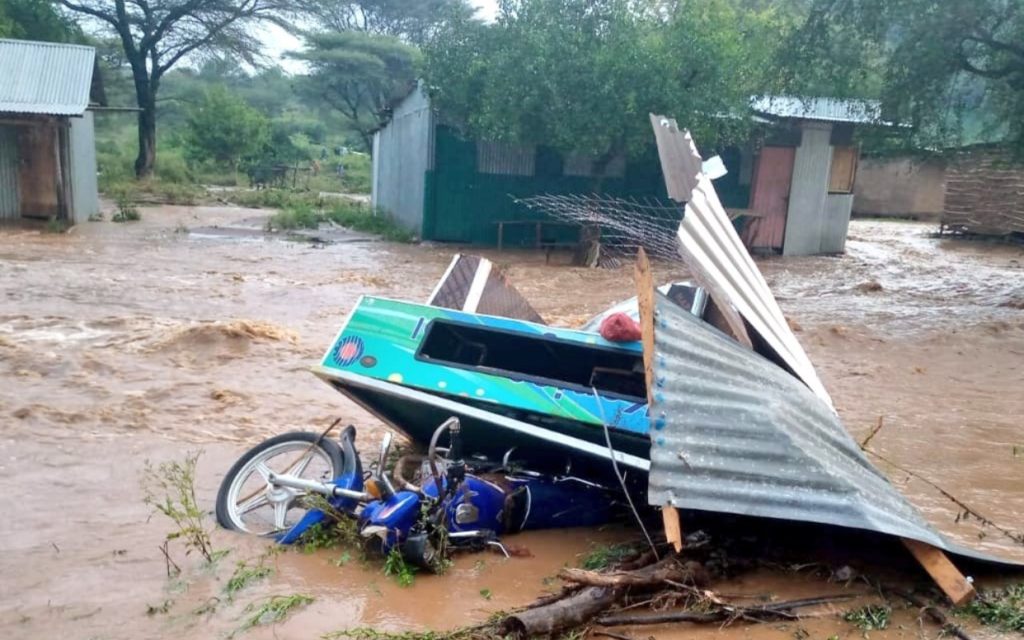Flood victims sue State for lack of action on climate
By Nancy.Gitonga, September 21, 2022A group of Baringo residents displaced by floods following the raging waters of Lake Baringo has sued the government for failing to take action to mitigate the adverse effects of climate change.
In the suit filed at the Environment and Lands Court in Kabarnet, the 66 residents claim that as a result of the government’s failure to integrate and mainstream climate change actions they have been rendered to abject poverty. The petitioners now want the High court to determine whether the government can be held accountable for the adverse effects of climate change and the environment, which have led to displacement and loss of their property. The 66 residents filed the case on behalf of the community living in Baringo through the Legal Advice Centre, Kituo Cha Sheria. “We urged the court to make a determination on whether Kenyans adversely affected by climate change as a result of alleged government’s failure to develop policy, take mitigation and adaptation measures are entitled to compensation,” the petitioners’ lawyer, ACORN Law Advocates LLP says.
They want the court to make the findings on grounds that the government’s failure, neglect, and refusal to integrate and mainstream climate change actions, their homes were submerged by raging floods from Lake Baringo leading to massive loss of their property.
Court papers show that the petitioners were forced to migrate to other areas having lost their homes and property including livestock. The 66 residents filed the case on behalf of the community living in Baringo through the Legal Advice Centre- Kituo Cha Sheria. They further claim that over the past decade the Lake has doubled in size and displaced them due to rising waters tied to climate change, the government is yet to take any action including a policy intervention.
“Entities responsible for putting in place relevant climate change policies to guarantee the right to a clean and healthy environment failed, refused and or neglected to do so,” they claim.
“Through their acts of omission and commission, the government and its agencies have exposed the Petitioners to the risk of contracting water-borne diseases including malaria, cholera, typhoid, dysentery and amoeba as well respiratory infections because of the cold,” they add.
The lawyers state that the fast-rising waters increasingly became a menace under the watch of the government and State agencies such as the National Environment Management Authority and the Ministry of Environment and Forestry.
“The government has discriminated against the petitioners by failing, refusing, and neglecting to rehabilitate, relocate and restore infrastructure damaged by floods such as roads, schools, dispensaries and health centres. Also damaged were police stations, electricity supply, water supply, agricultural fields and grazing areas, recreational areas and churches,” reads the court papers.
This is contrary to Article 27 of the Constitution of Kenya which guarantees the Petitioners the right to equal protection and equal benefit of the law,” they add.
Besides being displaced and losing properties, the petitioners say the expanding lake brought in crocodiles and hippos. This threatened their security and disrupted the education of the school-going children.
The petitioners are members of marginalized groups and they have since lost ancestral lands and grazing fields.
They are seeking several orders including to have the case referred to Chief Justice Martha Koome to appoint a three-judge bench to determine the dispute on grounds that it raises novel issues on climate change law.
The petitioners are however seeking declarations including an order for compensation for general damages for climate damage, negative impacts on their health and environment and dereliction of their statutory and constitutional obligations.
They also want an order for compensation for lost and submerged ancestral lands.
Further, they are seeking an order directing the Ministry and NEMA to conduct climate change scenarios and develop corresponding policy responses on how climate and environment changes will affect human population, infrastructure, the environment, the economy and the Kenyan society as a whole.
